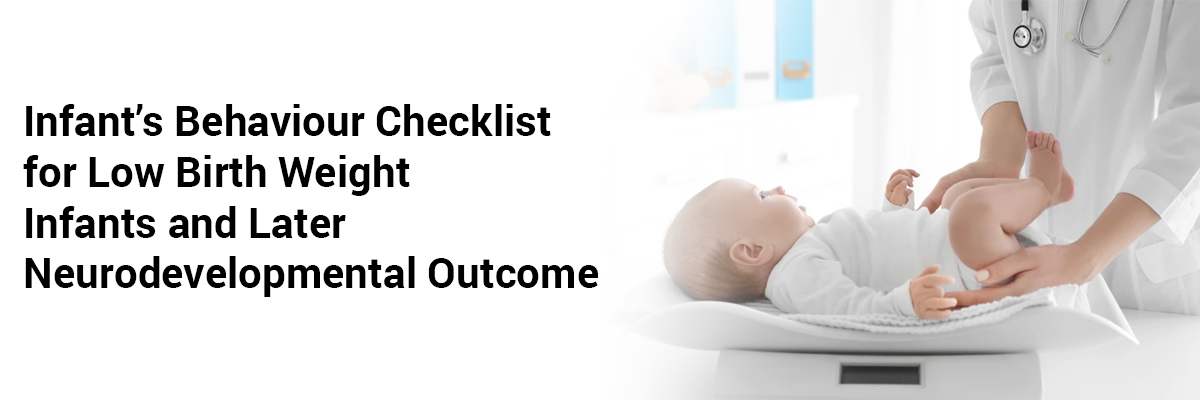
 IJCP Editorial Team
IJCP Editorial Team
Infant’s Behaviour Checklist for low birth weight infants and later neurodevelopmental outcome
Evaluating the features of spontaneous movements and behavior in early infancy assists in estimating developmental outcomes. A recent study introduced the Infant Behaviour Checklist (IBC) and examined the relationship between the behavioural characteristics of low-birth-weight infants and neurodevelopmental outcomes at 6 years of age. The behavioural characteristics during the neonatal (36–43 weeks, adjusted) and early infancy periods (49–60 weeks, adjusted) were evaluated in very-low-birth-weight infants. The IBC contains 44 common behaviors.
The study evaluated the arrival of individual behavioural characteristics at each period according to the neurodevelopmental outcome.
143 infants were assessed during the neonatal period, of which 89 showed typical development (TD), 30 showed intellectual disability (ID), and 24 showed autism spectrum disorder (ASD). 78 infants were assessed during early infancy, of which 40, 21, and 17 showed to have TD, ID, and ASD, respectively. The three behaviour-related items had a significantly lower frequency of appearance in the ID group than in the TD group. The three posture- and behaviour-related items had a significantly lower frequency of appearance, while of two posture-related items was a significantly higher frequency of appearance, in the ASD group than in the TD group. Behavioral assessment using the IBC may deliver promising clues when evaluating an early intervention for low-birth-weight infants.
SOURCE- Kihara H, Nakano H, Nakamura T, Gima H. Infant's Behaviour Checklist for low birth weight infants and later neurodevelopmental outcome. Sci Rep. 2021;11(1):19286. Published 2021 Sep 29. doi:10.1038/s41598-021-98884-y

IJCP Editorial Team
Comprising seasoned professionals and experts from the medical field, the IJCP editorial team is dedicated to delivering timely and accurate content and thriving to provide attention-grabbing information for the readers. What sets them apart are their diverse expertise, spanning academia, research, and clinical practice, and their dedication to upholding the highest standards of quality and integrity. With a wealth of experience and a commitment to excellence, the IJCP editorial team strives to provide valuable perspectives, the latest trends, and in-depth analyses across various medical domains, all in a way that keeps you interested and engaged.




















Please login to comment on this article